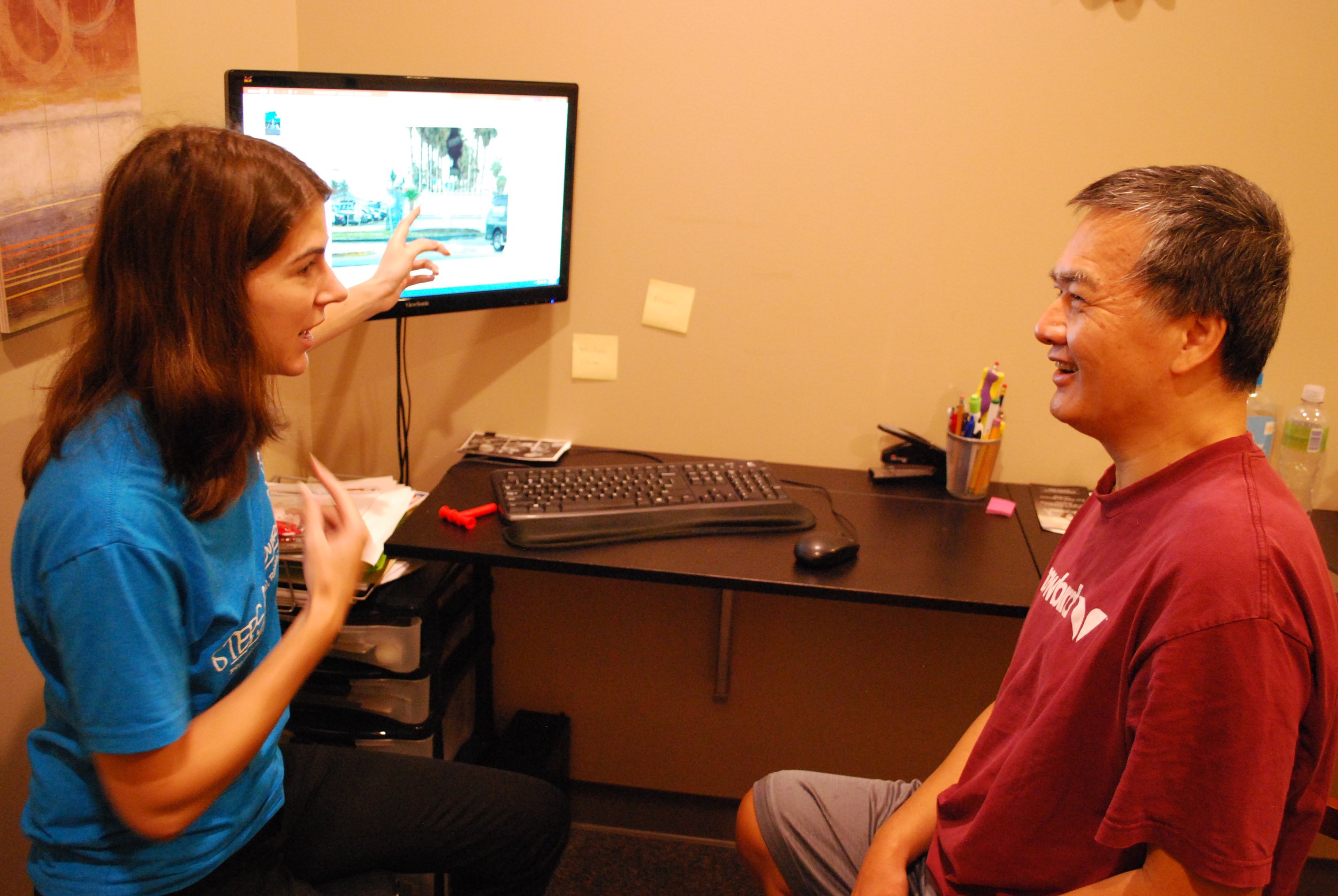Speech Therapy
Neurologic speech therapy focuses on helping individuals with neurological conditions, such as stroke, brain injury, or neurodegenerative diseases, improve their communication, swallowing, and cognitive-communication abilities. Therapists work on addressing challenges like speaking, understanding language, memory, and problem-solving, as well as managing swallowing difficulties (dysphagia). Through targeted exercises, strategies, and techniques, the therapy aims to enhance speech clarity, cognitive functions, and overall quality of life, helping individuals regain their ability to communicate effectively and safely eat or drink.
Speech Therapy may help if you have:
Difficulty with or inability to swallow
Trouble with food going down “the wrong way” or getting stuck in the mouth, throat or chest
Trouble moving your mouth, tongue, and/or lips
Uncoordinated or weak facial muscles
Difficulty making some or all sounds or slurring words
Scratchy or unusual vocal quality
Aphasia
Difficulty understanding spoken or written words
Trouble expressing your wants or needs
Trouble finding the right word(s) or saying the wrong word
Problems with switching sounds in words (“wish dasher" for "dishwasher"
New or increased difficulty with spelling/written word formation or mat
Confusion regarding orientation (who you are, where you are, time/date
Difficulty managing medications
Problems with forgetting important dates and appointment
Increased difficulty paying attention to tasks
Forgetfulness or confusion
Problems following conversations
